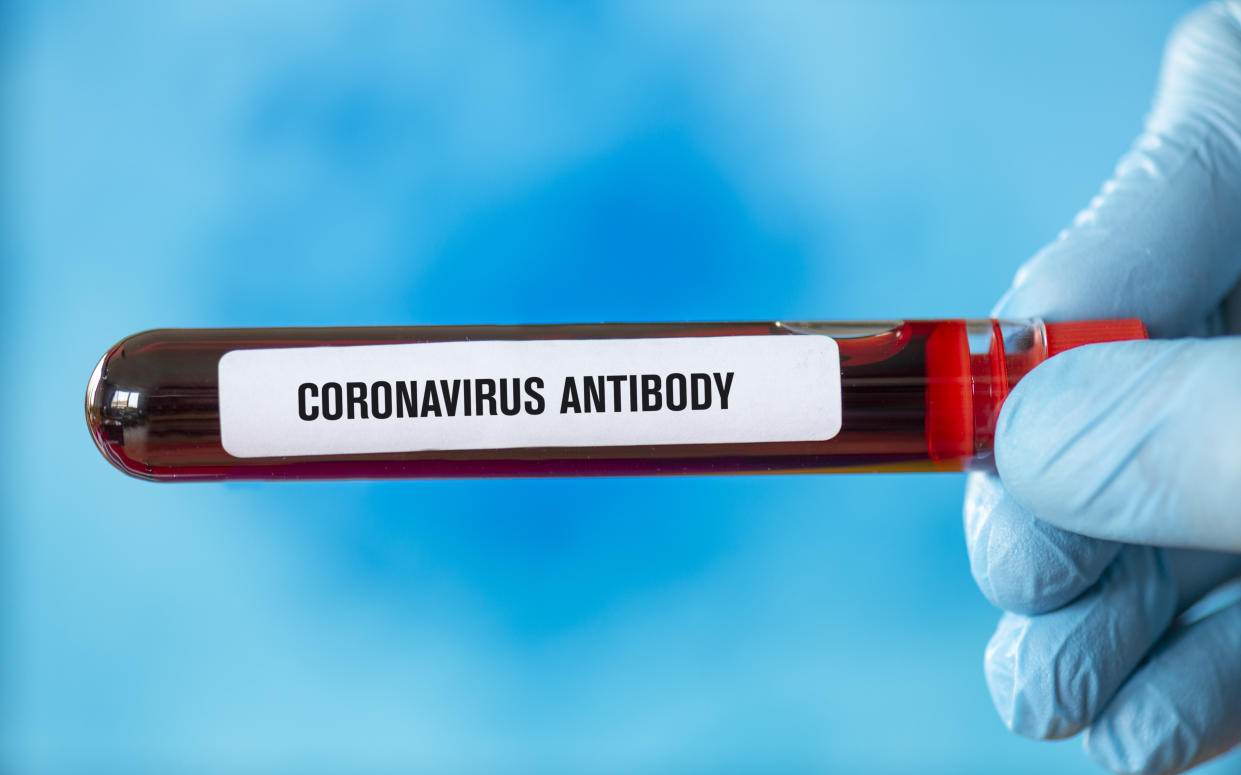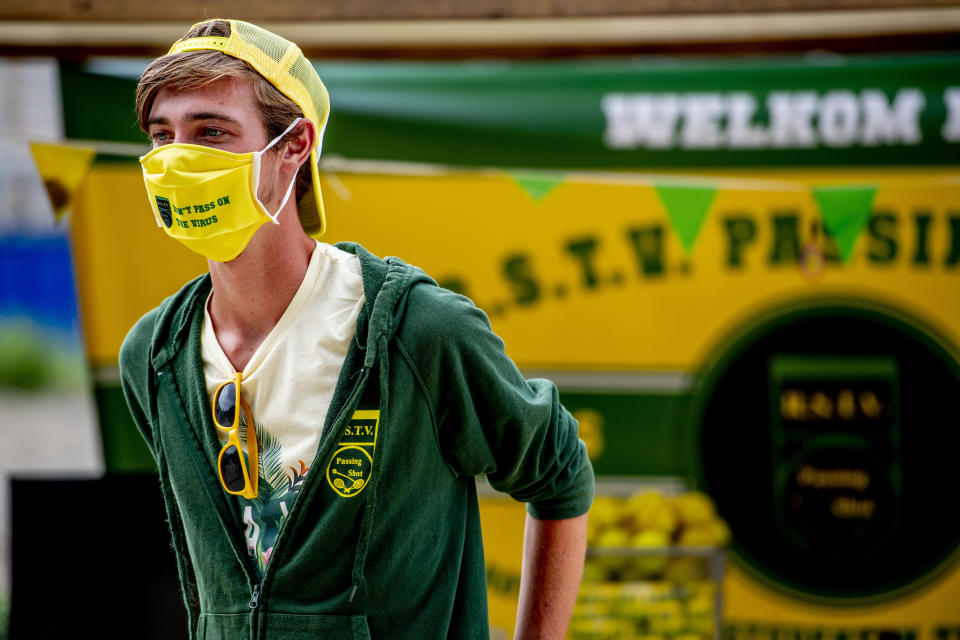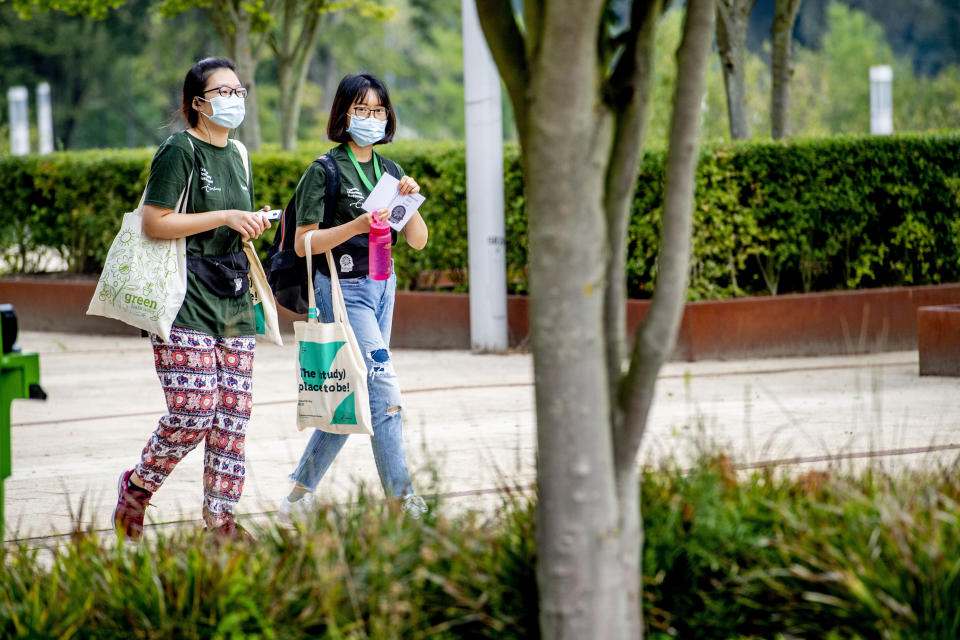‘Remarkable’ study suggests antibodies do protect against second coronavirus infection

A “remarkable” study suggests coronavirus antibodies do help to ward off a second infection.
Antibodies are immune-fighting proteins that circulate in the bloodstream after an individual has overcome a pathogen (a bacterium, virus or other microorganism that can cause disease).
Although these help to prevent an infection taking hold for a second time, concerns have been raised about how effective or long lasting they are when it comes to the coronavirus outbreak.
With vaccines only beneficial if they trigger an immune response, many worry fleeting immunity may hinder a much-wanted immunisation programme.
Read more: Coronavirus linked to onset of type 1 diabetes in children
New research has raised hopes, however, after scientists from the University of Washington analysed a small coronavirus outbreak on a fishing vessel off the coast of Seattle.
Out of the 122 passengers, 104 (85%) went on to test positive for the infection.
Only three individuals had the coronavirus before setting sail, none of whom caught the pathogen again during the trip.
Blood tests revealed they had “neutralising antibodies”, which “protected against reinfection”.

Antibodies ‘protect against reinfection’
When the immune system encounters a pathogen, cells work to create antibodies.
These are specific to each virus and lock onto its surface, neutralising or “marking” it for destruction by other immune cells.
When a pathogen is encountered for a second time, the immune system ramps up production of these “weapons”, preventing the virus from taking hold again.
This is the principle behind vaccines; exposing an individual to a harmless amount of an infection that allows the immune system to recognise it if it were to later invade the body.
Concerns have been raised as to how long coronavirus antibodies last, with one study also suggesting 8.5% of patients do not produce them.
Read more: Russia's coronavirus vaccine has 'rather little detail'
To learn more, the Washington scientists looked at an outbreak on a fishing vessel with a “high attack rate” – the proportion of people who became ill after exposure.
One hundred and twenty of the 122 passengers were tested for the coronavirus before and after departure.
Over an average follow-up period of 32 days, 104 of the passengers tested positive for the infection after the vessel docked.
The three who tested positive before the vessel set off were later found to have neutralising antibodies in their bloodstream, with none showing signs of a “bona fide viral infection” or any symptoms during the localised outbreak.
The presence of neutralising antibodies from a previous infection was therefore significantly associated with protection against reinfection, wrote the scientists.

‘Very good news for vaccine development’
The results have been published preliminarily at Medrix online, not in a peer-reviewed journal. Nevertheless, experts are enthused by the research.
“This is a very significant finding,” said Professor John Edmunds, from the London School of Hygiene & Tropical Medicine.
“It suggests neutralising antibodies can protect against infection. This has not been previously demonstrated in humans.
“The numbers are small and we don’t know how long any protection might last, so some caution needs to be applied.
Read more: Chronic fatigue emerging as coronavirus complication
“However, if these results are confirmed and backed up by similar studies, then it opens up the possibility of allowing people who have neutralising antibodies to start to return to normality with some degree of safety.
“It is also very good news for vaccine development as if a vaccine induces neutralising antibodies then it implies that it might be protective.”
Professor Danny Altmann, from Imperial College London, agreed and described the research as a “remarkable, real-life, human experiment”.
“In short, it’s good news,” he added. “Who knew immunology research on fishing boats could be so informative?”
Professor Jonathan Ball, from the University of Nottingham, called the study “really interesting”, but stressed further investigation is required.
“This gives us important insight into the type of immunity that might protect from future infection,” he said.
“What it doesn’t tell use is whether or not past exposure can protect against serious disease in those people lacking detectable neutralising antibodies. Both are relevant to vaccine design.”
This is not the first time hopes of an immune response have been raised amid the pandemic.
In July, scientists from the University of Oxford found their vaccine induced “strong antibody and T-cell immune responses up to day 56 of the ongoing trial”.
T-cells are another aspect of the immune system.
Helper T-cells stimulate antibody production and assist in the development of killer cells, which directly destroy body cells that have already been infected by a pathogen.
T-cells also send out messages that instruct the rest of the immune system to ramp up its response.
Professor Sarah Gilbert, lead researcher of Oxford’s vaccine development programme, previously said antibodies and T-cells “work together and are completely complementary”.

 Yahoo Lifestyle
Yahoo Lifestyle 

